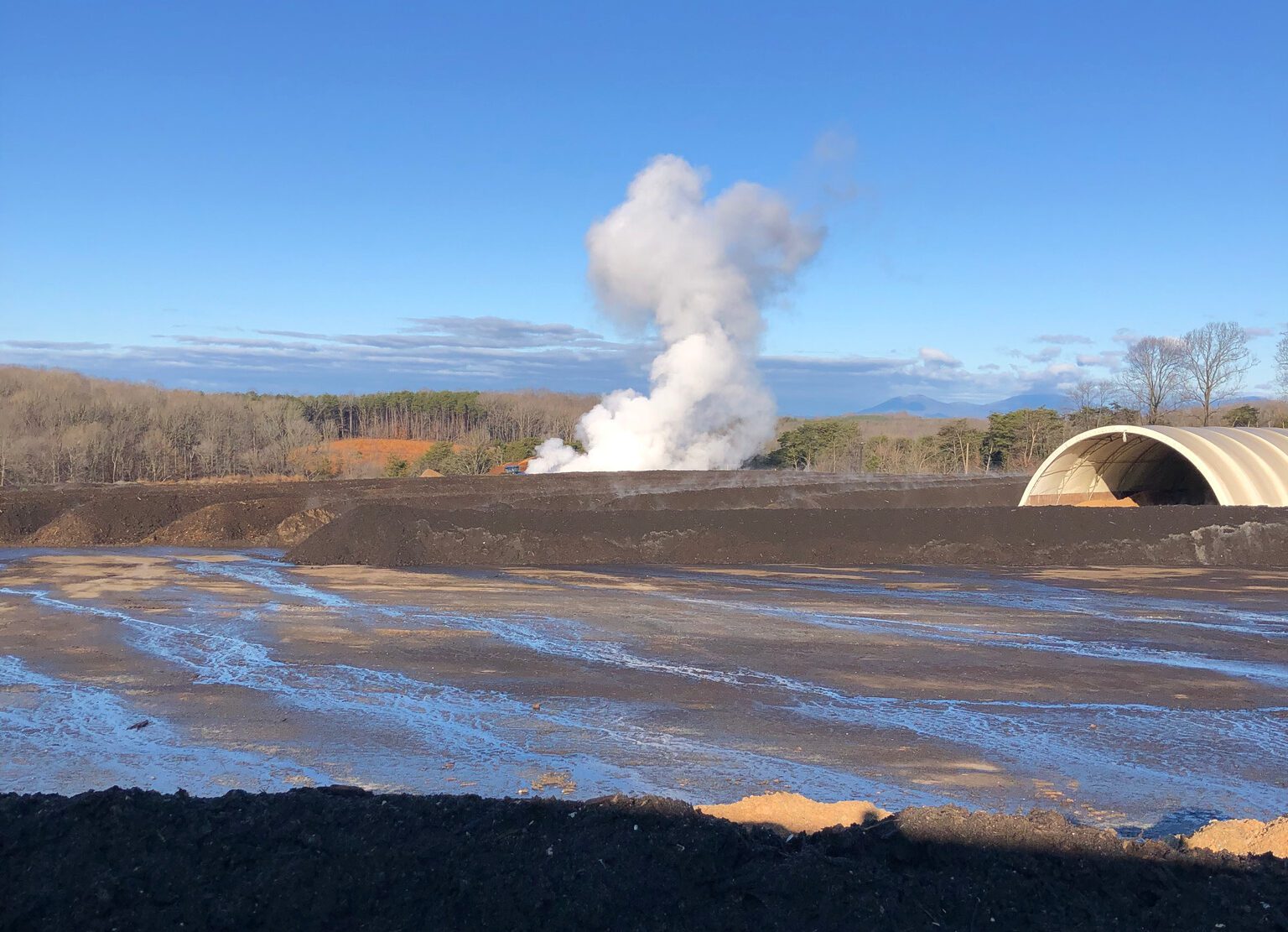As the popularity of commercial composting spreads across the United States, the need for commercial composting facilities increases – but so do the environmental impacts of large-scale compost, such as odor. When faced with operational challenges like odor, facility managers often need to problem-solve and perhaps pivot their thinking to overcome adversity. Keynote speaker, Christopher Hymas, opens the COMPOST 2022 conference with an inspirational presentation sharing his personal experience when faced with unforeseen obstacles and how he turned his life tragedy into a success story. Mr. Hymas’s opening speech motivated all COMPOST 2022 attendees as they approached the nation’s largest composting event, encouraging the crowd to face composting challenges and to acknowledge potential leadership qualities that are untapped while continuing to make a difference locally and regionally finding value in food waste. Partnering with innovative yet vetted solution providers like Byers Scientific allow facility managers to meet these environmental challenges head-on.
Commercial Composting Odor Control – A Success Story
Byers Scientific’s VP of Business Development, Josh Rembusch, was recently a featured speaker at COMPOST 2022, the nation’s largest commercial composting event. His presentation took a closer look at one of the biggest, but most underestimated, risks to commercial composters: odor. After discussing the science of odor and the classification of odor causing compounds (odorants) relevant to the composting industry, Josh shared a case study of a comprehensive Byers solution for the largest commercial compositing facility in the state of Virginia. With an influx of community odor complaints resulting from the introduction of highly odorous commercial waste streams into their composting feedstocks, this facility partnered with Byers Scientific and successfully deployed two Byers Mitigation Technologies’ systems – our patented perimeter vapor system and an atomization system for their windrow turner.
When asked by an audience member what metrics were used to measure the success of the Byers odor control equipment at this site, Josh explained that there was a significant reduction in odor complaints post-installation of our odor control equipment and thanks to real-time data provided by the on-board SCADA technology, the facility manager was empowered to identify habitual spurious odor complaints, which could then be refuted with the Department of Environmental Quality (DEQ) regulating the facility. All this to say, Byers understands there is never a silver bullet when tasked with mitigating odor from a commercial composting facility over 100 acres but its proven effective strategies and systems provide operators with crucial support to continue to overcome environmental concerns like odor.
No Silver Bullet for Odor Control
Byers Scientific recognizes that the issue of odor control is an ongoing concern and that there can be more than one solution depending on the type of commercial composting facility. Whether the facility is a traditional outdoor windrow style or relies on aerated static piles, which can be done indoors, there are ways to combat and reduce odor up-front with both operational and highly engineered design changes by engineering firms. However, when it comes to finding a solution for the classic commercial composting operations across the country and/or where new facility layouts are not feasible due to, as an example, a lack of footprint for appropriate biofilters for odor control, the Byers’ patented vapor phase system is the most effective solution for mitigating odor impacts.
Upon his return from the conference, Josh shared his experience with the tight-knit commercial composting community as the US Composting Council (USCC) recognized a long-time contributor to resolving odor issues involved with commercial composting and friend of Byers Scientific, Craig Coker, principal of Coker Composting & Consulting, with the Jerome Goldstein Lifetime Achievement Award. Josh was also impressed with the various all-encompassing conference tracks from “…collection to making black gold…” as well as the integration / unification of the national and state-level USCC networks, as Byers is a member of the VA Compost Chapter. Specifically impressionable was hearing from Leslie Rogers of Atlas Organics on the nuances of working with schools to segregate organics and the education process that is necessary to avoid contamination.
The Challenge of Food Waste Organics for Commercial Composters
With the inclusion and segregation of food waste organics, odor will continue to be an issue that needs to be addressed by designers and managers of commercial composting facilities as they continue to scale up both in terms of size and diversity of waste streams. Additionally, monitoring environmental conditions such as wind speed and direction in real time will become critical to developing a comprehensive odor management plan for these facilities as they become closer to residential communities as a result of facility expansion and neighborhood growth. This real-time data collection and reporting capability will empower operators to prove regulatory compliance, as well as community advocacy and engagement as the commercial composting industry expands.
Fortunately, Byers Scientific now offers a monitoring solution through its recent strategic partnership with Envirosuite. By offering Envirosuite’s industry-leading environmental intelligence systems, including e-nose technology for VOC monitoring and reverse-trajectory modeling for complaint review, Byers Scientific is further empowering commercial compost operators to address odor and related issues while proving compliance and informing operational decisions.
Contact us today to learn more.


